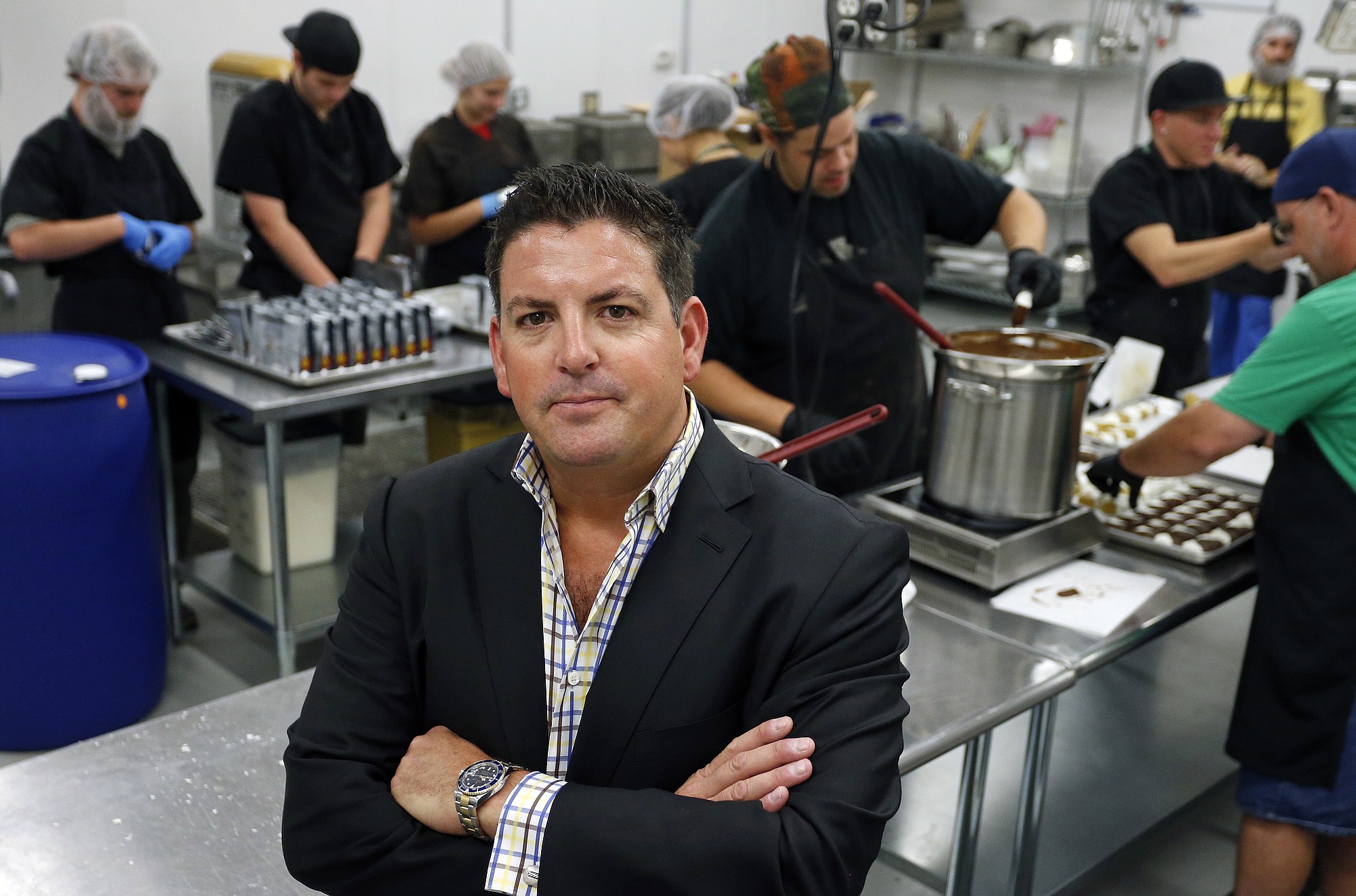DENVER — The entrepreneurs of the young U.S. marijuana industry are taking another step into the mainstream, becoming political donors who use some of their profits to support cannabis-friendly candidates and ballot questions that could bring legal pot to more states.
The political activity includes swanky fundraisers at Four Seasons hotels and art auctions at law firms. And members of Congress who once politely returned the industry’s contribution checks are now keeping them.
“We’re developing an industry here from the ground up. If we don’t contribute politically and get out there with the candidates, we can’t help shape what happens,” said Patrick McManamon, head of Cleveland-based Cannasure Insurance Services, which offers insurance to marijuana growers and dispensaries.
Medical marijuana businesses have been giving to candidates since the late 1990s. With the arrival of recreational pot in Colorado and Washington, the industry and its political influence are expanding rapidly.
Pot is now legal for medical or recreational purposes in 23 states and Washington, D.C. More marijuana measures will be on the November ballot in Oregon, Florida, Alaska and the nation’s capital, so many contributions are being funneled into those campaigns and the candidates who support them.
Compared with the donations of other industries or advocacy groups, the political spending by marijuana businesses is modest. But, said Tripp Keber, head of Denver-based Dixie Elixirs & Edibles, which makes pot-infused soda, food and lotion, “the word is out that the marijuana industry has money to give.”
Keber attended a summer fundraiser for Colorado Gov. John Hickenlooper, who opposed legalization in 2012 but has promised to regulate the industry according to voters’ wishes.
“It was interesting to see how he’s starting to evolve. I said, ‘I’m telling you, I can get 100 people in the room who would be happy to max out,'” or give the state’s maximum legal donation of $1,100, Keber said.
A few weeks later, in August, Keber threw a fundraiser at the Four Seasons in Denver with a goal of raising $16,000 for Hickenlooper. The event netted $40,000.
In Washington state, the industry’s contributions are channeled into reforms that include reducing the tax rate on pot and kicking some marijuana revenue back to cities and counties to encourage more communities to allow dispensaries, said dispensary owner John Davis, who also serves as director of the Coalition for Cannabis Standards and Ethics.
Not long ago, most marijuana entrepreneurs were “trying to scrape a few dollars together” to get started, Keber said. “Now this industry is becoming profitable, and we’re taking that profit and investing it politically. There isn’t a week that goes by where we don’t make a political donation.”
The Oregon ballot measure has raised about $2.3 million. A medical-marijuana question in Florida has attracted nearly $6 million. And the Alaska campaign has brought in about $850,000. A recreational pot measure in Washington, D.C., attracted few donations, perhaps because it appears almost certain to pass.
Colorado’s congressional delegation alone has received some $20,000 this year from the marijuana industry, according to federal campaign-finance data. The true figure is probably much higher because many donors do not mention the drug in campaign-finance disclosures.
The largest federal spender on marijuana advocacy is the Marijuana Policy Project, which plans to donate $150,000 to federal candidates this year, up from $110,000 in 2013. The Drug Policy Alliance and the National Organization for the Reform of Marijuana Laws have also given directly to federal candidates, and tax-exempt industry groups such as the National Cannabis Industry Association can spend an unlimited amount of untracked money.
Politicians who used to reject checks from pro-marijuana donors “aren’t doing that anymore,” said Ethan Nadelmann, head of the New York-based Drug Policy Alliance.
Still, the same candidates who cash the checks aren’t always keen to talk about it. About a dozen recipients of marijuana money declined interview requests or did not return calls from The Associated Press.
A Colorado state lawmaker who accepts marijuana-industry donations conceded thinking twice before taking them.
“I always worry about what people’s perceptions will be,” said Rep. Jonathan Singer, a Democrat who is the only sitting Colorado legislator who supported legalization. “But it came down to, I’m on record for where I stood before I ever took a penny from this industry.”
Todd Mitchem, a Denver marijuana industry consultant, recalled a fundraiser earlier this year thrown by a maker of cannabis vaporizer cartridges for a state legislator. When the company posted photos from the event on its Facebook page, the lawmaker asked that the images be taken down.
“They just didn’t want to be seen. They were still taking the money,” said Mitchem, who declined to name the lawmaker.
The only member of Congress who responded to the AP was Colorado Democratic Rep. Jared Polis, a longtime ally of the marijuana industry who has proposed federal legalization.
“As long as this industry Is following our state marijuana laws,” Polis said in a statement, “their contributions are the same as those from any other legal donors.”



